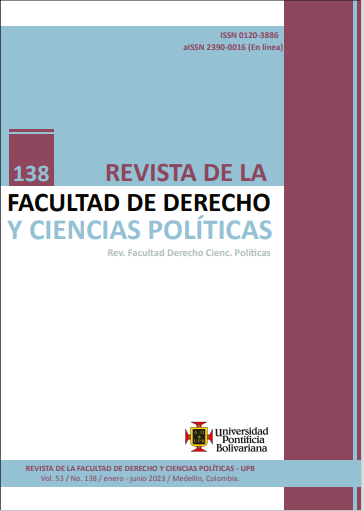El Perfil Ético Humano (PEH) y la ética del cuidado: requisitos democráticos para el regreso a clases en México ante la nueva normalidad
Contenido principal del artículo
Resumen
La pandemia ha obligado a los gobiernos a implementar acciones emergentes para ayudar a la población a retornar a sus actividades “normales”, como el regreso a las actividades escolares presenciales. En este trabajo se buscó determinar la necesidad o no de una sinergia entre autoridades educativas y población estudiantil que permita a los educandos su retorno a clases presenciales en los niveles básico y medio. Se realizó una revisión contextual de la pandemia causada por COVID-19 con relación a las posibilidades de retorno seguro a clases en México y se analizaron los rasgos configuradores de un “Perfil Ético Humano” (PEH), derivados de la “ética del cuidado”, para contrastarlos con las acciones gubernamentales.
Lo anterior por medio de una revisión documental en los medios oficiales de la Secretaría de Salud para conocer el comportamiento del semáforo epidemiológico respecto a las acciones institucionales empleadas por el gobierno mexicano y la respuesta poblacional en cuanto a medidas de prevención. Como resultado se obtuvo que tanto el PEH como la ética mínima son requisitos esenciales para lograr el cuidado mutuo derivado de las acciones entre las esferas gubernamental y ciudadana para un retorno seguro a clases presenciales.
Citas
Cabezudo, A. (2018), Hacia una educación para la paz, respeto de los derechos humanos y desarme: desafío pedagógico desde una perspectiva latinoamericana, en Dora Elvira García-González (Ed.), Enfoques contemporáneos para los estudios de paz, México: Tecnológico de Monterrey – Conacyt. pp. 70-84.
Camhaji, E. (2021) México autoriza la primera vacuna contra la COVID-19 para adolescentes. https://elpais.com/mexico/2021-06-25/mexico-autoriza-la-primera-vacuna-contra-la-covid-19-para-adolescentes.html
Comins Mingol, I. y Jiménez Arenas, J. (2019), Reflexiones filosófico-antropológicas en torno al cuidado como origen y fundamento de la justicia, Cabello-Tijerina P., Díaz Pérez G. y Vázquez Gutiérrez R. L. (coord.). Investigación para la Paz: teorías, prácticas y nuevos enfoques, España: Tirant Lo Blanch, pp. 82-103.
Cortina, A. (2000), Ética mínima, Madrid: Tecnos.
Salinas Maldonado, C. (9 de agosto de 2020). La crisis del coronavirus obliga a desertar a 1.5 millones de estudiantes mexicanos, El País. https://elpais.com/ mexico/2020-08-09/la-crisis-del-coronavirus-obliga-a-desertar-a-25-millones- estudiantes-mexicanos.html
Secretaría de Salud. (2021). Gobierno de México. Política Nacional de Vacunación contra el virus SARS-CoV-2, para la prevención de la Covid-19 en México, documento rector, versión 6.0. https://coronavirus.gob.mx/wp-content/uploads/2021/05/11May2021_PNVx_COVID.pdf
UNAM. (2021). Plataforma de información geográfica de la UNAM sobre COVID-19 en México. https://covid19.ciga.unam.mx
UNESCO. (s/f). Derecho a la Educación. https://es.unesco.org/themes/derecho-a-educacion
University of Oxford. (2021). Statistics and research. Coronavirus, COVID-19 vaccinations. Our World in Data, Oxford Martin School. https://ourworldindata.org/covid- vaccinations?country=OWID_WRL,
Vázquez Gutiérrez, R. (2019). Transversalidad práctica de la educación para la paz. En: Cabello-Tijerina P., Díaz Pérez G. y Vázquez Gutiérrez R. L. (coord.) Investigación para la Paz: teorías, prácticas y nuevos enfoques, España: Tirant Lo Blanch, pp. 50-63.


